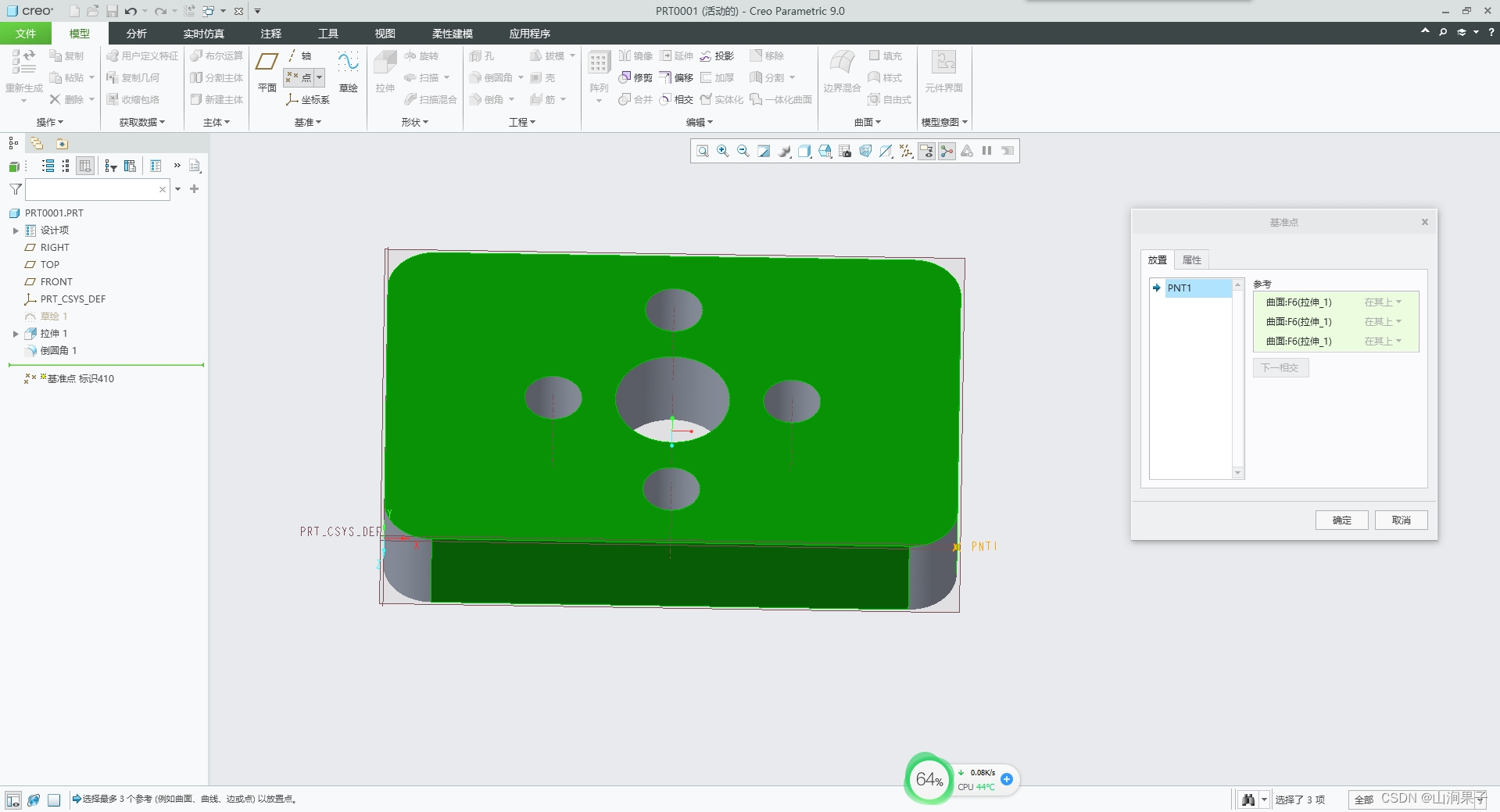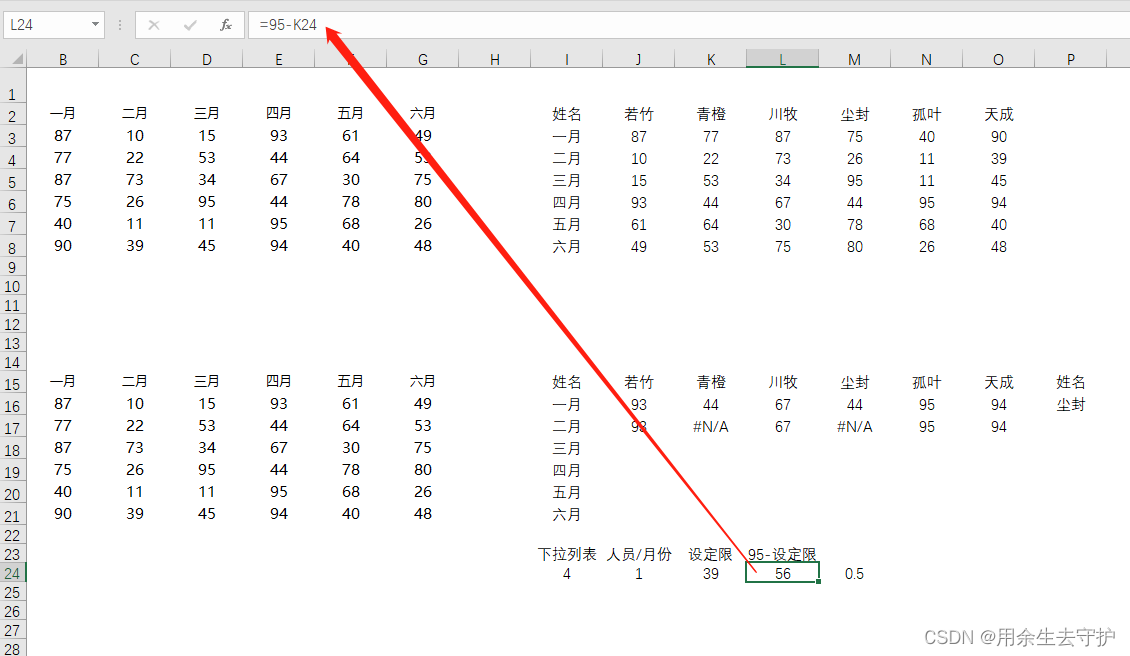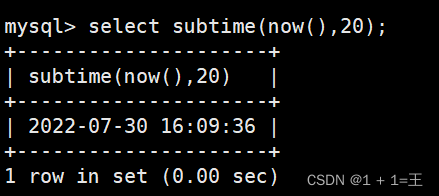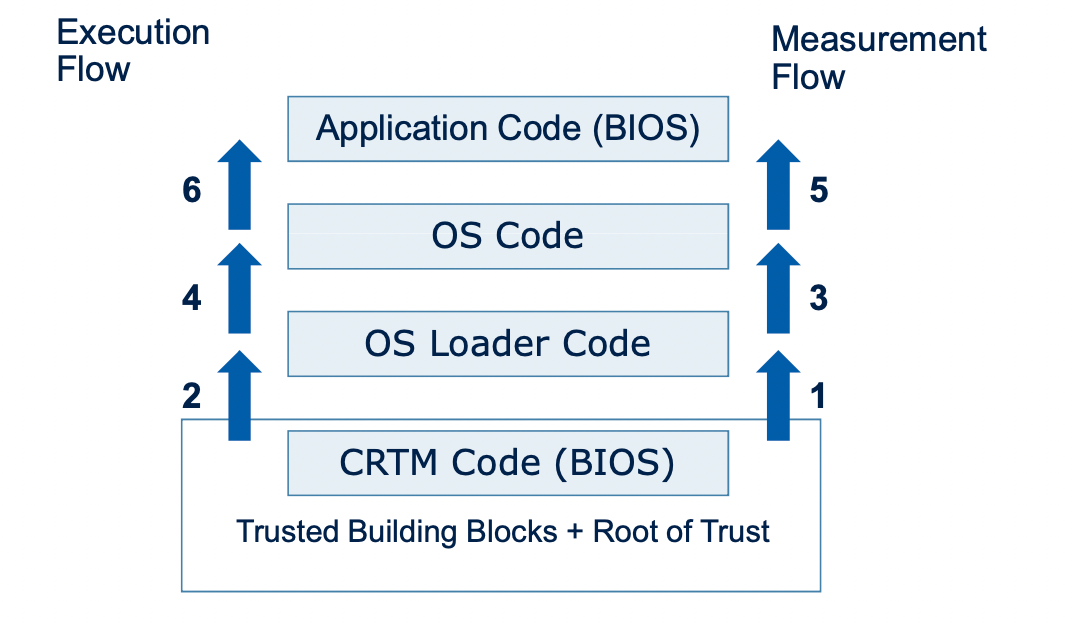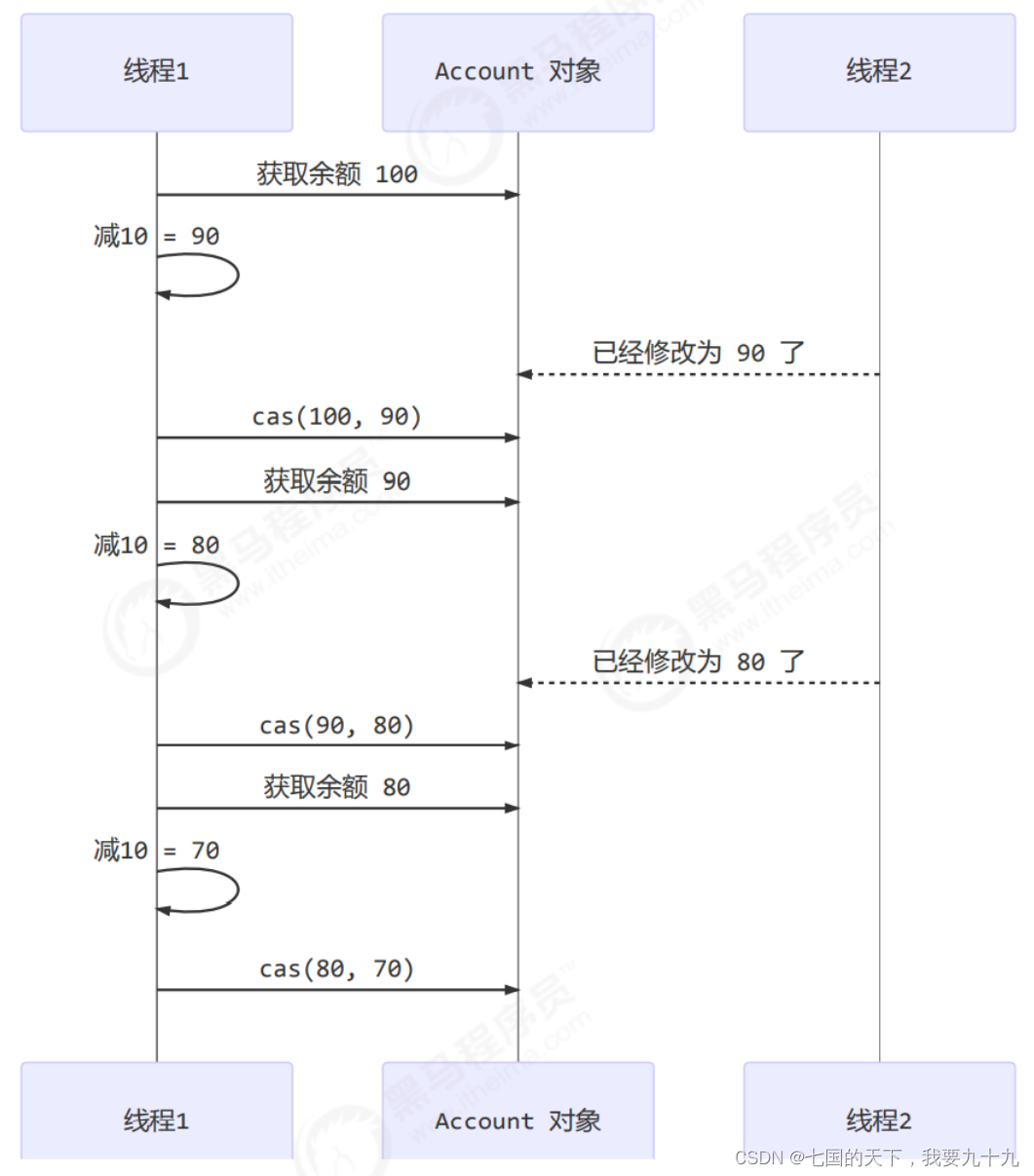当前位置:网站首页>手把手教你纯c实现异常捕获try-catch组件
手把手教你纯c实现异常捕获try-catch组件
2022-08-05 09:13:00 【cheems~】
手把手教你纯c实现异常捕获try-catch组件
前言
本文用纯c的代码,实现异常捕获try-catch组件。阅读本文需要时刻牢记setjmp和longjmp的对应关系。
本专栏知识点是通过零声教育的线上课学习,进行梳理总结写下文章,对c/c++linux课程感兴趣的读者,可以点击链接 C/C++后台高级服务器课程介绍 详细查看课程的服务。
try / catch / finally / throw 介绍
在java,python,c++里面都有try catch异常捕获。在try代码块里面执行的函数,如果出错有异常了,就会throw把异常抛出来,抛出来的异常被catch接收进行处理,而finally意味着无论有没有异常,都会执行finally代码块内的代码。
try{
connect_sql();//throw
}catch(){
}finally {
};
如何实现try-catch这一机制?
关于跳转,有两个跳转。那么在这里我们必然选用长跳转。
- goto:函数内跳转,短跳转
- setjmp/longjmp:跨函数跳转,长跳转
setjmp/longjmp这两个函数是不存在压栈出栈的,也就是说longjmp跳转到setjmp的地方后,会覆盖之前的栈。
setjmp/longjmp使用介绍(重点)
- setjmp(env):设置跳转的位置,第一次返回0,后续返回longjmp的第二个参数
- longjmp(env, idx):跳转到设置env的位置,第二个参数就是setjmp()的返回值
#include <stdio.h>
#include <setjmp.h>
jmp_buf env;
int count = 0;
void sub_func(int idx) {
printf("sub_func -->idx : %d\n", idx);
//第二个参数就是setjmp()的返回值
longjmp(env, idx);
}
int main() {
int idx = 0;
//设置跳转标签,第一次返回0
count = setjmp(env);
if (count == 0) {
printf("count : %d\n", count);
sub_func(++idx);
}
else if (count == 1) {
printf("count : %d\n", count);
sub_func(++idx);
}
else if (count == 2) {
printf("count : %d\n", count);
sub_func(++idx);
}
else {
printf("other count \n");
}
return 0;
}
count : 0
sub_func -->idx : 1
count : 1
sub_func -->idx : 2
count : 2
sub_func -->idx : 3
other count
try-catch 和 setjmp/longjmp 的关系
try ---> setjmp(env)
throw ---> longjmp(env,Exception)
catch(Exception)
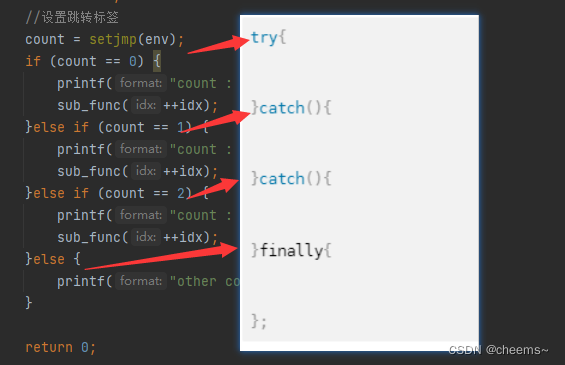
我们其实可以分析出来,setjmp和count==0的地方,相当于try,后面的else if 相当于catch,最后一个else,其实并不是finally,因为finally是不管怎么样都会执行,上图我标注的其实是误导的。应该是下图这样才对。
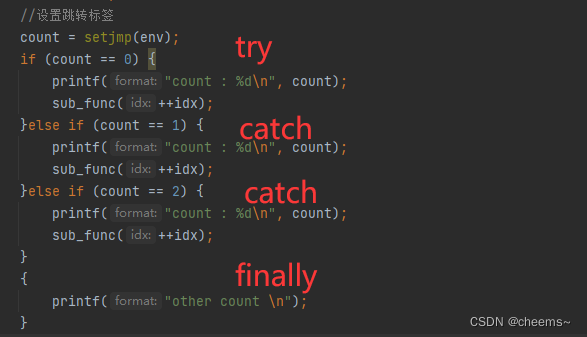

宏定义实现try-catch Demo
4个关键字分析出来它们的关系之后,其实我们就能用宏定义来实现了。
#include <stdio.h>
#include <setjmp.h>
typedef struct _Exception {
jmp_buf env;
int exceptype;
} Exception;
#define Try(excep) if((excep.exceptype=setjmp(excep.env))==0)
#define Catch(excep, ExcepType) else if(excep.exceptype==ExcepType)
#define Throw(excep, ExcepType) longjmp(excep.env,ExcepType)
#define Finally
void throw_func(Exception ex, int idx) {
printf("throw_func -->idx : %d\n", idx);
Throw(ex, idx);
}
int main() {
int idx = 0;
Exception ex;
Try(ex) {
printf("ex.exceptype : %d\n", ex.exceptype);
throw_func(ex, ++idx);
}
Catch(ex, 1) {
printf("ex.exceptype : %d\n", ex.exceptype);
}
Catch(ex, 2) {
printf("ex.exceptype : %d\n", ex.exceptype);
}
Catch(ex, 3) {
printf("ex.exceptype : %d\n", ex.exceptype);
}
Finally{
printf("Finally\n");
};
return 0;
}
ex.exceptype : 0
throw_func -->idx : 1
ex.exceptype : 1
Finally
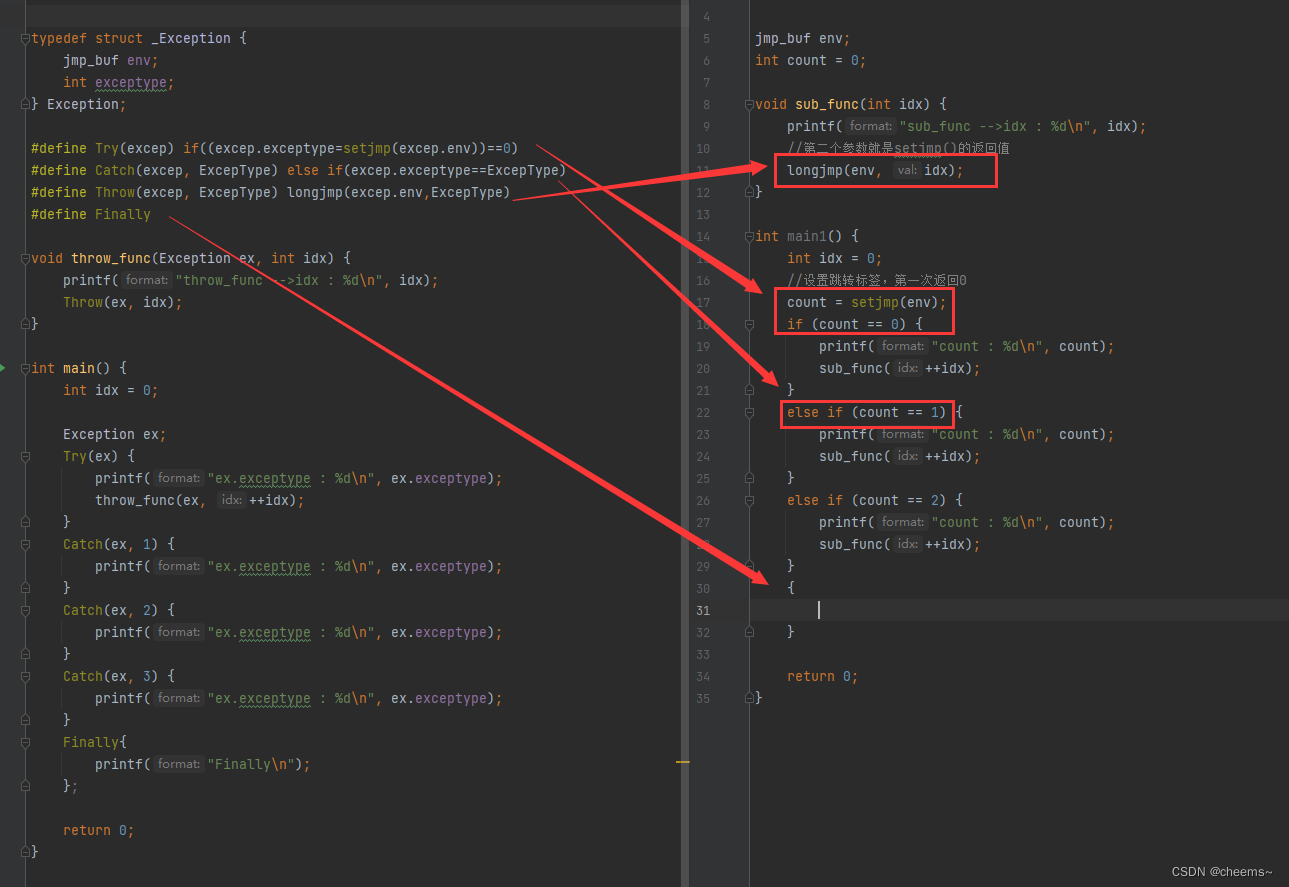
实现try-catch的三个问题
虽然现在demo版看起来像这么回事了,但是还是有两个问题:
- 在哪个文件哪个函数哪个行抛的异常?
- try-catch嵌套怎么做?
- try-catch线程安全怎么做?
1. 在哪个文件哪个函数哪个行抛的异常
系统提供了三个宏可以供我们使用,如果我们没有catch到异常,我们就可以打印出来
__func__, __FILE__, __LINE__
2. try-catch嵌套怎么做?
我们知道try-catch是可以嵌套的,那么这就形成了一个栈的数据结构,现在下面有三个try,每个setjmp对应的都是不同的jmp_buf,那么我们可以定义一个jmp_buf的栈。
try{
try{
try{
}catch(){
}
}catch(){
}
}catch(){
}finally{
};
那么我们很容易能写出来,既然是栈,try的时候我们就插入一个结点,catch的时候我们就pop一个出来。
#define EXCEPTION_MESSAGE_LENGTH 512
typedef struct _ntyException {
const char *name;
} ntyException;
ntyException SQLException = {
"SQLException"};
ntyException TimeoutException = {
"TimeoutException"};
typedef struct _ntyExceptionFrame {
jmp_buf env;
int line;
const char *func;
const char *file;
ntyException *exception;
struct _ntyExceptionFrame *next;
char message[EXCEPTION_MESSAGE_LENGTH + 1];
} ntyExceptionFrame;
enum {
ExceptionEntered = 0,//0
ExceptionThrown, //1
ExceptionHandled, //2
ExceptionFinalized//3
};
3. try-catch线程安全
每个线程都可以try-catch,但是我们以及知道了是个栈结构,既ExceptionStack,那么每个线程是独有一个ExceptionStack呢?还是共享同一个ExceptionStack?很明显,A线程的异常应该有A的处理,而不是由B线程处理。那么我们就使用Linux线程私有数据Thread-specific Data(TSD) 详解来做。
/* ** **** ******** **************** Thread safety **************** ******** **** ** */
#define ntyThreadLocalData pthread_key_t
#define ntyThreadLocalDataSet(key, value) pthread_setspecific((key), (value))
#define ntyThreadLocalDataGet(key) pthread_getspecific((key))
#define ntyThreadLocalDataCreate(key) pthread_key_create(&(key), NULL)
ntyThreadLocalData ExceptionStack;
static void init_once(void) {
ntyThreadLocalDataCreate(ExceptionStack);
}
static pthread_once_t once_control = PTHREAD_ONCE_INIT;
void ntyExceptionInit(void) {
pthread_once(&once_control, init_once);
}
代码实现与解释
try
首先创建一个新节点入栈,然后setjmp设置一个标记,接下来就是大括号里面的操作了,如果有异常,那么就会被throw抛出来,为什么这里最后一行是if?因为longjmp的时候,返回的地方是setjmp,不要忘了!要时刻扣住longjmp和setjmp。
#define Try do {
\ volatile int Exception_flag; \ ntyExceptionFrame frame; \ frame.message[0] = 0; \ frame.next = (ntyExceptionFrame*)ntyThreadLocalDataGet(ExceptionStack); \ ntyThreadLocalDataSet(ExceptionStack, &frame); \ Exception_flag = setjmp(frame.env); \ if (Exception_flag == ExceptionEntered) {
Try{
//...
Throw(A, "A");
}
throw
在这里,我们不应该把throw定义成宏,而应该定义成函数。这里分两类,一类是try里面的throw,一类是没有try直接throw。
- 对于try里面的异常,我们将其状态变成ExceptionThrown,然后longjmp到setjmp的地方,由catch处理
- 对于直接抛的异常,必然没有catch去捕获,那么我们直接打印出来
- 如果第一种情况的异常,没有被catch捕获到怎么办呢?后面会被ReThrow出来,对于再次被抛出,我们就直接进行打印异常
这里的##__VA_ARGS__是可变参数,具体不多介绍了,不是本文重点。
#define ReThrow ntyExceptionThrow(frame.exception, frame.func, frame.file, frame.line, NULL)
#define Throw(e, cause, ...) ntyExceptionThrow(&(e), __func__, __FILE__, __LINE__, cause, ##__VA_ARGS__,NULL)
void ntyExceptionThrow(ntyException *excep, const char *func, const char *file, int line, const char *cause, ...) {
va_list ap;
ntyExceptionFrame *frame = (ntyExceptionFrame *) ntyThreadLocalDataGet(ExceptionStack);
if (frame) {
//异常名
frame->exception = excep;
frame->func = func;
frame->file = file;
frame->line = line;
//异常打印的信息
if (cause) {
va_start(ap, cause);
vsnprintf(frame->message, EXCEPTION_MESSAGE_LENGTH, cause, ap);
va_end(ap);
}
ntyExceptionPopStack;
longjmp(frame->env, ExceptionThrown);
}
//没有被catch,直接throw
else if (cause) {
char message[EXCEPTION_MESSAGE_LENGTH + 1];
va_start(ap, cause);
vsnprintf(message, EXCEPTION_MESSAGE_LENGTH, cause, ap);
va_end(ap);
printf("%s: %s\n raised in %s at %s:%d\n", excep->name, message, func ? func : "?", file ? file : "?", line);
}
else {
printf("%s: %p\n raised in %s at %s:%d\n", excep->name, excep, func ? func : "?", file ? file : "?", line);
}
}
Catch
如果还是ExceptionEntered状态,说明没有异常,没有throw。如果捕获到异常了,那么其状态就是ExceptionHandled。
#define Catch(nty_exception) \ if (Exception_flag == ExceptionEntered) ntyExceptionPopStack; \ } else if (frame.exception == &(nty_exception)) {
\ Exception_flag = ExceptionHandled;
Finally
finally也是一样,如果还是ExceptionEntered状态,说明没有异常没有捕获,那么现在状态是终止阶段。
#define Finally \ if (Exception_flag == ExceptionEntered) ntyExceptionPopStack; \ } {
\ if (Exception_flag == ExceptionEntered) \ Exception_flag = ExceptionFinalized;
EndTry
有些人看到EndTry可能会有疑问,try-catch一共不就4个关键字吗?怎么你多了一个。我们先来看看EndTry做了什么,首先如果是ExceptionEntered状态,那意味着什么?意味着没有throw,没有catch,没有finally,只有try,我们需要对这种情况进行处理,要出栈。还有一种情况,如果是ExceptionThrown状态,说明什么?没有被catch捕获到,那么我们就再次抛出,进行打印错误。至于为什么多个EndTry,写起来方便呗~
#define EndTry \ if (Exception_flag == ExceptionEntered) ntyExceptionPopStack; \ } if (Exception_flag == ExceptionThrown) {
ReThrow;} \ } while (0)
try-catch代码
/* ** **** ******** **************** try / catch / finally / throw **************** ******** **** ** */
#define EXCEPTION_MESSAGE_LENGTH 512
typedef struct _ntyException {
const char *name;
} ntyException;
ntyException SQLException = {
"SQLException"};
ntyException TimeoutException = {
"TimeoutException"};
typedef struct _ntyExceptionFrame {
jmp_buf env;
int line;
const char *func;
const char *file;
ntyException *exception;
struct _ntyExceptionFrame *next;
char message[EXCEPTION_MESSAGE_LENGTH + 1];
} ntyExceptionFrame;
enum {
ExceptionEntered = 0,//0
ExceptionThrown, //1
ExceptionHandled, //2
ExceptionFinalized//3
};
#define ntyExceptionPopStack \ ntyThreadLocalDataSet(ExceptionStack, ((ntyExceptionFrame*)ntyThreadLocalDataGet(ExceptionStack))->next)
#define ReThrow ntyExceptionThrow(frame.exception, frame.func, frame.file, frame.line, NULL)
#define Throw(e, cause, ...) ntyExceptionThrow(&(e), __func__, __FILE__, __LINE__, cause, ##__VA_ARGS__,NULL)
#define Try do {
\ volatile int Exception_flag; \ ntyExceptionFrame frame; \ frame.message[0] = 0; \ frame.next = (ntyExceptionFrame*)ntyThreadLocalDataGet(ExceptionStack); \ ntyThreadLocalDataSet(ExceptionStack, &frame); \ Exception_flag = setjmp(frame.env); \ if (Exception_flag == ExceptionEntered) {
#define Catch(nty_exception) \ if (Exception_flag == ExceptionEntered) ntyExceptionPopStack; \ } else if (frame.exception == &(nty_exception)) {
\ Exception_flag = ExceptionHandled;
#define Finally \ if (Exception_flag == ExceptionEntered) ntyExceptionPopStack; \ } {
\ if (Exception_flag == ExceptionEntered) \ Exception_flag = ExceptionFinalized;
#define EndTry \ if (Exception_flag == ExceptionEntered) ntyExceptionPopStack; \ } if (Exception_flag == ExceptionThrown) {
ReThrow;} \ } while (0)
void ntyExceptionThrow(ntyException *excep, const char *func, const char *file, int line, const char *cause, ...) {
va_list ap;
ntyExceptionFrame *frame = (ntyExceptionFrame *) ntyThreadLocalDataGet(ExceptionStack);
if (frame) {
//异常名
frame->exception = excep;
frame->func = func;
frame->file = file;
frame->line = line;
//异常打印的信息
if (cause) {
va_start(ap, cause);
vsnprintf(frame->message, EXCEPTION_MESSAGE_LENGTH, cause, ap);
va_end(ap);
}
ntyExceptionPopStack;
longjmp(frame->env, ExceptionThrown);
}
//没有被catch,直接throw
else if (cause) {
char message[EXCEPTION_MESSAGE_LENGTH + 1];
va_start(ap, cause);
vsnprintf(message, EXCEPTION_MESSAGE_LENGTH, cause, ap);
va_end(ap);
printf("%s: %s\n raised in %s at %s:%d\n", excep->name, message, func ? func : "?", file ? file : "?", line);
}
else {
printf("%s: %p\n raised in %s at %s:%d\n", excep->name, excep, func ? func : "?", file ? file : "?", line);
}
}
Debug测试代码
/* ** **** ******** **************** debug **************** ******** **** ** */
ntyException A = {
"AException"};
ntyException B = {
"BException"};
ntyException C = {
"CException"};
ntyException D = {
"DException"};
void *thread(void *args) {
pthread_t selfid = pthread_self();
Try
{
Throw(A, "A");
}
Catch (A)
{
printf("catch A : %ld\n", selfid);
}
EndTry;
Try
{
Throw(B, "B");
}
Catch (B)
{
printf("catch B : %ld\n", selfid);
}
EndTry;
Try
{
Throw(C, "C");
}
Catch (C)
{
printf("catch C : %ld\n", selfid);
}
EndTry;
Try
{
Throw(D, "D");
}
Catch (D)
{
printf("catch D : %ld\n", selfid);
}
EndTry;
Try
{
Throw(A, "A Again");
Throw(B, "B Again");
Throw(C, "C Again");
Throw(D, "D Again");
}
Catch (A)
{
printf("catch A again : %ld\n", selfid);
}
Catch (B)
{
printf("catch B again : %ld\n", selfid);
}
Catch (C)
{
printf("catch C again : %ld\n", selfid);
}
Catch (D)
{
printf("catch B again : %ld\n", selfid);
}
EndTry;
}
#define PTHREAD_NUM 8
int main(void) {
ntyExceptionInit();
printf("\n\n=> Test1: Throw\n");
{
Throw(D, NULL); //ntyExceptionThrow(&(D), "_function_name_", "_file_name_", 202, ((void *) 0), ((void *) 0))
Throw(C, "null C"); //ntyExceptionThrow(&(C), "_function_name_", "_file_name_", 203, "null C", ((void *) 0))
}
printf("=> Test1: Ok\n\n");
printf("\n\n=> Test2: Try-Catch Double Nesting\n");
{
Try
{
Try
{
Throw(B, "call B");
}
Catch (B)
{
printf("catch B \n");
}
EndTry;
Throw(A, NULL);
}
Catch(A)
{
printf("catch A \n");
printf("Result: Ok\n");
}
EndTry;
}
printf("=> Test2: Ok\n\n");
printf("\n\n=> Test3: Try-Catch Triple Nesting\n");
{
Try
{
Try
{
Try
{
Throw(C, "call C");
}
Catch (C)
{
printf("catch C\n");
}
EndTry;
Throw(B, "call B");
}
Catch (B)
{
printf("catch B\n");
}
EndTry;
Throw(A, NULL);
}
Catch(A)
{
printf("catch A\n");
}
EndTry;
}
printf("=> Test3: Ok\n\n");
printf("=> Test4: Test Thread-safeness\n");
int i = 0;
pthread_t th_id[PTHREAD_NUM];
for (i = 0; i < PTHREAD_NUM; i++) {
pthread_create(&th_id[i], NULL, thread, NULL);
}
for (i = 0; i < PTHREAD_NUM; i++) {
pthread_join(th_id[i], NULL);
}
printf("=> Test4: Ok\n\n");
printf("\n\n=> Test5: No Success Catch\n");
{
Try
{
Throw(A, "no catch A ,should Rethrow");
}
EndTry;
}
printf("=> Test5: Rethrow Success\n\n");
printf("\n\n=> Test6: Normal Test\n");
{
Try
{
Throw(A, "call A");
}
Catch(A)
{
printf("catch A\n");
}
Finally
{
printf("wxf nb\n");
};
EndTry;
}
printf("=> Test6: ok\n\n");
}
线程安全、try-catch、Debug测试代码 汇总
#include <stdio.h>
#include <setjmp.h>
#include <pthread.h>
#include <stdarg.h>
/* ** **** ******** **************** Thread safety **************** ******** **** ** */
#define ntyThreadLocalData pthread_key_t
#define ntyThreadLocalDataSet(key, value) pthread_setspecific((key), (value))
#define ntyThreadLocalDataGet(key) pthread_getspecific((key))
#define ntyThreadLocalDataCreate(key) pthread_key_create(&(key), NULL)
ntyThreadLocalData ExceptionStack;
static void init_once(void) {
ntyThreadLocalDataCreate(ExceptionStack);
}
static pthread_once_t once_control = PTHREAD_ONCE_INIT;
void ntyExceptionInit(void) {
pthread_once(&once_control, init_once);
}
/* ** **** ******** **************** try / catch / finally / throw **************** ******** **** ** */
#define EXCEPTION_MESSAGE_LENGTH 512
typedef struct _ntyException {
const char *name;
} ntyException;
ntyException SQLException = {
"SQLException"};
ntyException TimeoutException = {
"TimeoutException"};
typedef struct _ntyExceptionFrame {
jmp_buf env;
int line;
const char *func;
const char *file;
ntyException *exception;
struct _ntyExceptionFrame *next;
char message[EXCEPTION_MESSAGE_LENGTH + 1];
} ntyExceptionFrame;
enum {
ExceptionEntered = 0,//0
ExceptionThrown, //1
ExceptionHandled, //2
ExceptionFinalized//3
};
#define ntyExceptionPopStack \ ntyThreadLocalDataSet(ExceptionStack, ((ntyExceptionFrame*)ntyThreadLocalDataGet(ExceptionStack))->next)
#define ReThrow ntyExceptionThrow(frame.exception, frame.func, frame.file, frame.line, NULL)
#define Throw(e, cause, ...) ntyExceptionThrow(&(e), __func__, __FILE__, __LINE__, cause, ##__VA_ARGS__,NULL)
#define Try do {
\ volatile int Exception_flag; \ ntyExceptionFrame frame; \ frame.message[0] = 0; \ frame.next = (ntyExceptionFrame*)ntyThreadLocalDataGet(ExceptionStack); \ ntyThreadLocalDataSet(ExceptionStack, &frame); \ Exception_flag = setjmp(frame.env); \ if (Exception_flag == ExceptionEntered) {
#define Catch(nty_exception) \ if (Exception_flag == ExceptionEntered) ntyExceptionPopStack; \ } else if (frame.exception == &(nty_exception)) {
\ Exception_flag = ExceptionHandled;
#define Finally \ if (Exception_flag == ExceptionEntered) ntyExceptionPopStack; \ } {
\ if (Exception_flag == ExceptionEntered) \ Exception_flag = ExceptionFinalized;
#define EndTry \ if (Exception_flag == ExceptionEntered) ntyExceptionPopStack; \ } if (Exception_flag == ExceptionThrown) {
ReThrow;} \ } while (0)
void ntyExceptionThrow(ntyException *excep, const char *func, const char *file, int line, const char *cause, ...) {
va_list ap;
ntyExceptionFrame *frame = (ntyExceptionFrame *) ntyThreadLocalDataGet(ExceptionStack);
if (frame) {
//异常名
frame->exception = excep;
frame->func = func;
frame->file = file;
frame->line = line;
//异常打印的信息
if (cause) {
va_start(ap, cause);
vsnprintf(frame->message, EXCEPTION_MESSAGE_LENGTH, cause, ap);
va_end(ap);
}
ntyExceptionPopStack;
longjmp(frame->env, ExceptionThrown);
}
//没有被catch,直接throw
else if (cause) {
char message[EXCEPTION_MESSAGE_LENGTH + 1];
va_start(ap, cause);
vsnprintf(message, EXCEPTION_MESSAGE_LENGTH, cause, ap);
va_end(ap);
printf("%s: %s\n raised in %s at %s:%d\n", excep->name, message, func ? func : "?", file ? file : "?", line);
}
else {
printf("%s: %p\n raised in %s at %s:%d\n", excep->name, excep, func ? func : "?", file ? file : "?", line);
}
}
/* ** **** ******** **************** debug **************** ******** **** ** */
ntyException A = {
"AException"};
ntyException B = {
"BException"};
ntyException C = {
"CException"};
ntyException D = {
"DException"};
void *thread(void *args) {
pthread_t selfid = pthread_self();
Try
{
Throw(A, "A");
}
Catch (A)
{
printf("catch A : %ld\n", selfid);
}
EndTry;
Try
{
Throw(B, "B");
}
Catch (B)
{
printf("catch B : %ld\n", selfid);
}
EndTry;
Try
{
Throw(C, "C");
}
Catch (C)
{
printf("catch C : %ld\n", selfid);
}
EndTry;
Try
{
Throw(D, "D");
}
Catch (D)
{
printf("catch D : %ld\n", selfid);
}
EndTry;
Try
{
Throw(A, "A Again");
Throw(B, "B Again");
Throw(C, "C Again");
Throw(D, "D Again");
}
Catch (A)
{
printf("catch A again : %ld\n", selfid);
}
Catch (B)
{
printf("catch B again : %ld\n", selfid);
}
Catch (C)
{
printf("catch C again : %ld\n", selfid);
}
Catch (D)
{
printf("catch B again : %ld\n", selfid);
}
EndTry;
}
#define PTHREAD_NUM 8
int main(void) {
ntyExceptionInit();
printf("\n\n=> Test1: Throw\n");
{
Throw(D, NULL); //ntyExceptionThrow(&(D), "_function_name_", "_file_name_", 202, ((void *) 0), ((void *) 0))
Throw(C, "null C"); //ntyExceptionThrow(&(C), "_function_name_", "_file_name_", 203, "null C", ((void *) 0))
}
printf("=> Test1: Ok\n\n");
printf("\n\n=> Test2: Try-Catch Double Nesting\n");
{
Try
{
Try
{
Throw(B, "call B");
}
Catch (B)
{
printf("catch B \n");
}
EndTry;
Throw(A, NULL);
}
Catch(A)
{
printf("catch A \n");
printf("Result: Ok\n");
}
EndTry;
}
printf("=> Test2: Ok\n\n");
printf("\n\n=> Test3: Try-Catch Triple Nesting\n");
{
Try
{
Try
{
Try
{
Throw(C, "call C");
}
Catch (C)
{
printf("catch C\n");
}
EndTry;
Throw(B, "call B");
}
Catch (B)
{
printf("catch B\n");
}
EndTry;
Throw(A, NULL);
}
Catch(A)
{
printf("catch A\n");
}
EndTry;
}
printf("=> Test3: Ok\n\n");
printf("=> Test4: Test Thread-safeness\n");
int i = 0;
pthread_t th_id[PTHREAD_NUM];
for (i = 0; i < PTHREAD_NUM; i++) {
pthread_create(&th_id[i], NULL, thread, NULL);
}
for (i = 0; i < PTHREAD_NUM; i++) {
pthread_join(th_id[i], NULL);
}
printf("=> Test4: Ok\n\n");
printf("\n\n=> Test5: No Success Catch\n");
{
Try
{
Throw(A, "no catch A ,should Rethrow");
}
EndTry;
}
printf("=> Test5: Rethrow Success\n\n");
printf("\n\n=> Test6: Normal Test\n");
{
Try
{
Throw(A, "call A");
}
Catch(A)
{
printf("catch A\n");
}
Finally
{
printf("wxf nb\n");
};
EndTry;
}
printf("=> Test6: ok\n\n");
}
void all() {
///try
do {
volatile int Exception_flag;
ntyExceptionFrame frame;
frame.message[0] = 0;
frame.next = (ntyExceptionFrame *) pthread_getspecific((ExceptionStack));
pthread_setspecific((ExceptionStack), (&frame));
Exception_flag = _setjmp(frame.env);
if (Exception_flag == ExceptionEntered) {
///
{
///try
do {
volatile int Exception_flag;
ntyExceptionFrame frame;
frame.message[0] = 0;
frame.next = (ntyExceptionFrame *) pthread_getspecific((ExceptionStack));
pthread_setspecific((ExceptionStack), (&frame));
Exception_flag = _setjmp(frame.env);
if (Exception_flag == ExceptionEntered) {
///
{
///Throw(B, "recall B"); --->longjmp ExceptionThrown
ntyExceptionThrow(&(B), "_function_name_", "_file_name_", 302, "recall B", ((void *) 0));
///
}
///Catch (B)
if (Exception_flag == ExceptionEntered)
ntyExceptionPopStack;
}
else if (frame.exception == &(B)) {
Exception_flag = ExceptionHandled;
///
{
///
printf("recall B \n");
///
}
fin
if (Exception_flag == ExceptionEntered)
ntyExceptionPopStack;
if (Exception_flag == ExceptionEntered)
Exception_flag = ExceptionFinalized;
/{
{
printf("fin\n");
};
}
///EndTry;
if (Exception_flag == ExceptionEntered)
ntyExceptionPopStack;
}
if (Exception_flag == ExceptionThrown)
ntyExceptionThrow(frame.exception, frame.func, frame.file, frame.line, ((void *) 0));
} while (0);
///Throw(A, NULL); longjmp ExceptionThrown
ntyExceptionThrow(&(A), "_function_name_", "_file_name_", 329, ((void *) 0), ((void *) 0));
///
}
///Catch(A)
if (Exception_flag == ExceptionEntered)
ntyExceptionPopStack;
}
else if (frame.exception == &(A)) {
Exception_flag = ExceptionHandled;
///
{
///
printf("\tResult: Ok\n");
///
}
/// EndTry;
if (Exception_flag == ExceptionEntered)
ntyExceptionPopStack;
}
if (Exception_flag == ExceptionThrown)
ntyExceptionThrow(frame.exception, frame.func, frame.file, frame.line, ((void *) 0));
} while (0);
///
}
边栏推荐
猜你喜欢
随机推荐
express hot-reload
Pagoda measurement - building small and medium-sized homestay hotel management source code
Does flink cdc support synchronization from oracle dg library?
【零基础玩转BLDC系列】无刷直流电机无位置传感器三段式启动法详细介绍及代码分享
CCVR基于分类器校准缓解异构联邦学习
基因数据平台
干货!生成模型的评价与诊断
欧盟 | 地平线 2020 ENSEMBLE:D2.13 SOTIF Safety Concept(上)
按钮上显示值的轮流切换
DPU — 功能特性 — 管理系统的硬件卸载
Controller-----controller
营销建议 | 您有一份八月营销月历待查收! 建议收藏 !
施一公:科学需要想象,想象来自阅读
MySQL database error The server quit without updating PID file (/var/lib/mysql/localhost.localdomain.pid)
The Seven Weapons of Programmers
深度学习21天——卷积神经网络(CNN):服装图像分类(第3天)
放大器OPA855的噪声计算实例
DPU — 功能特性 — 存储系统的硬件卸载
手机上流行的各类谜语
【ASM】字节码操作 方法的初始化 Frame

